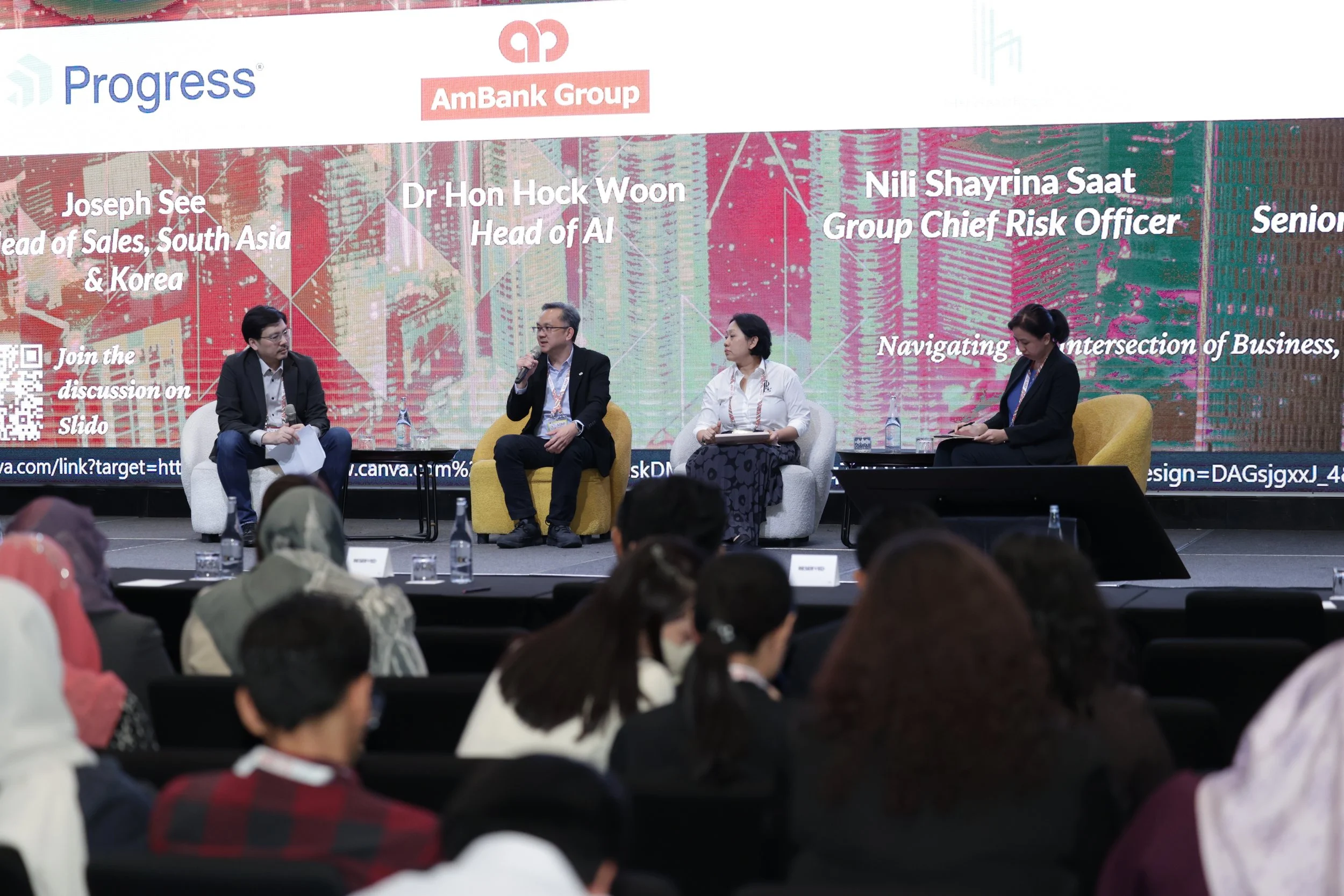Responsible AI, Strategic Readiness, and Cyber Resilience in Focus - Day 1 AIBP Conference & Exhibition Malaysia
The 49th ASEAN Innovation Business Platform Conference & Exhibition Malaysia marks the commencement of a series of regional discussions this year. The conference convened senior executives, regulators, and digital leaders to explore the evolving role of artificial intelligence in industry transformation, resilience building, and Malaysia’s digital advancement. With a strong emphasis on responsible innovation, the sessions underscored both the vast potential of AI and the structural challenges that must be addressed for widespread adoption.
In the opening session, leaders from CIMB Group, Maybank, Tenaga Nasional Berhad (TNB), and the National Artificial Intelligence Office (NAIO) set the tone by positioning AI as a strategic business enabler that requires careful and responsible integration. Dr. Chan Cheong Siew, Chief Strategy & Transformation Officer at Maybank, stressed the urgency for firms to develop internal AI capabilities, citing a critical three-to-five-year window to secure a competitive edge. Pedro Uria-Recio of CIMB advocated for a phased adoption approach, starting with productivity tools and evolving toward full enterprise integration.
The panel emphasised that while AI holds transformative potential, its implementation must be grounded in responsibility. Shamsul Majid, CEO of the National Artificial Intelligence Office (NAIO), called for sector specific governance frameworks to address risks such as algorithmic bias, data misuse, and workforce displacement. Datuk Ir. Megat Jalaluddin, President and CEO of Tenaga Nasional Berhad (TNB), reinforced this perspective, noting that AI should complement, not replace, human decision making.
Building on insights from the opening discussion, subsequent panels explored deeper, sector-specific applications and implications of artificial intelligence. Industry leaders examined how AI-driven strategies translate strategic intent into tangible outcomes across sectors, highlighting the following themes:
Strategic Readiness through Human Centric AI Implementation
In sectors ranging from agriculture to insurance, AI is already driving significant gains in efficiency, automation, and optimisation of complex processes. However, panelists consistently stressed the need for human oversight and strategic creativity. Rather than replacing human capabilities, AI should be deployed to enhance them. Ethical implementation was a recurring theme, with an emphasis on fostering human AI collaboration that leverages human judgement, strategic thinking, and continuous governance.
Data Governance in the Age of Generative AI
Speakers highlighted the urgent need to modernise traditional data protection frameworks, which fall short when confronted with the scale and complexity of generative AI. A more advanced, context aware approach was encouraged, supported by technologies like semantic intelligence and transformer based models. In data sensitive sectors such as finance and healthcare, accountability, transparency, and explainability were identified as critical. Organisations must maintain rigorous documentation, establish clear model ownership, and implement thorough testing protocols to ensure fairness, reliability, and regulatory compliance.
Cyber Resilience Against Emerging AI Threats
With the rapid evolution of generative AI, the nature of cyber threats is becoming more complex. Experts warned that conventional security measures are no longer sufficient against AI driven threats such as adaptive malware and highly sophisticated phishing campaigns. To build resilience, organisations must adopt multi-layered defence strategies, invest in upskilling cybersecurity teams, and deploy advanced monitoring systems capable of real time threat detection and mitigation. Cyber resilience now demands not only technical sophistication but also proactive risk management and the agility to respond to an ever changing threat landscape.
This concern was echoed throughout the conversations at AIBP C&E Malaysia, where participants reinforced a critical shift in mindset: AI adoption is no longer a question of "if," but "how." That “how” goes beyond the deployment of tools or technologies. True digital transformation requires responsible governance, strategic alignment with both national and enterprise objectives, and seamless integration across systems and stakeholders. As Malaysia deepens its role in ASEAN’s digital economy, the message becomes even more apparent: The real value of AI lies not in its novelty, but in strategic use, anchored in trust and transparency.



